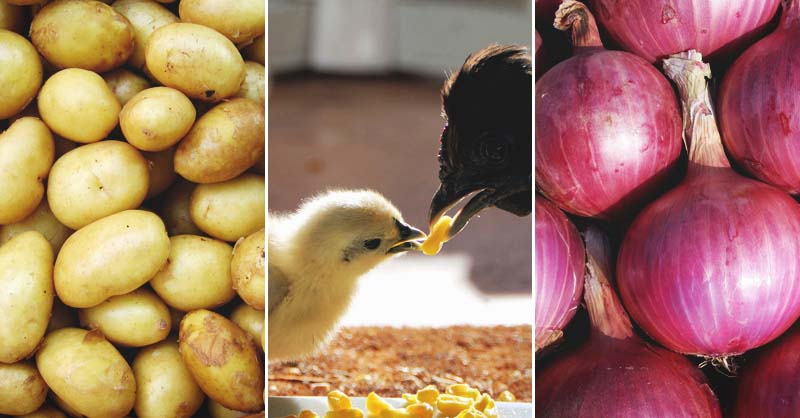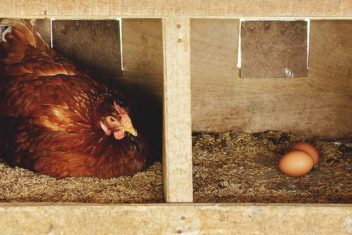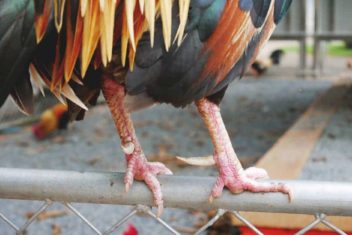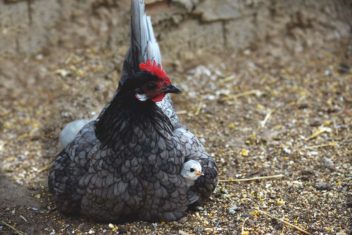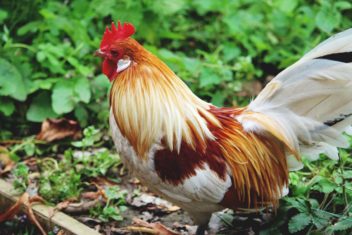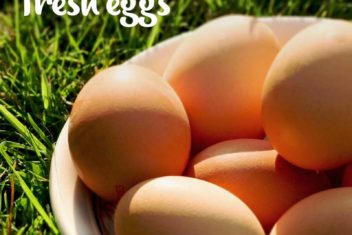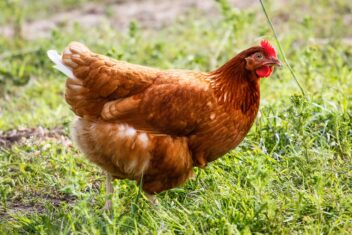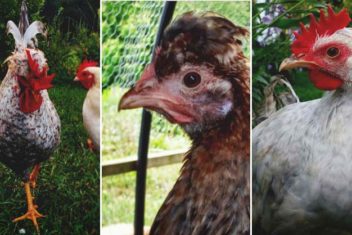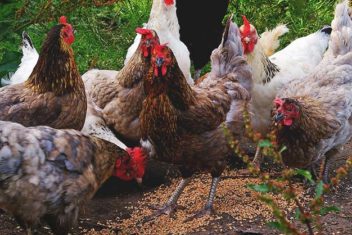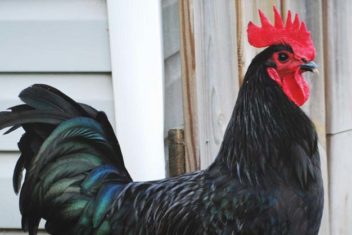One of the most entertaining things about owning chickens is watching them gobble down a new treat. It’s fun to give your flock table scraps or garden clippings, and for the most part, chickens have iron stomachs.
Chickens can eat a lot of different food items– don’t forget they are omnivores, so they love both meat and veggies.
It can be tempting to take a pale of leftovers out to your coop and dump everything right into their feed dish.
But, as robust as chickens are, there are still a few things chickens cannot eat. Aside from the following items, you can pretty much give your chickens whatever they want:
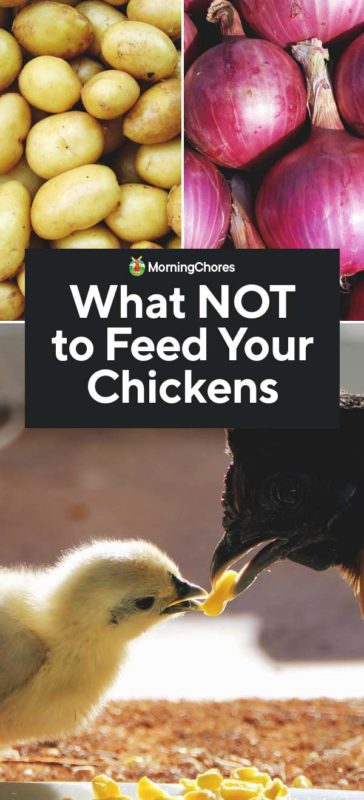
1. Potatoes
Ok, so there is a fine line when it comes to potatoes because in general, chickens can consume ripe, cooked potatoes. However, they cannot eat green raw potatoes because they contain solanine, which is extremely deadly to chickens.
When it comes to potatoes, it may be better to err on the safe side and never feed them to your chickens–just in case they are undercooked.
2. Onions
Onions contain thiosulfate, which can kill red blood cells and cause anemia in chickens. Other plants in this family (allium) include shallots, scallions, and chives.
Garlic is also a member of the allium family, but it is safe for chickens to consume because it contains significantly less thiosulfate than other plants in this family.
3. Asparagus
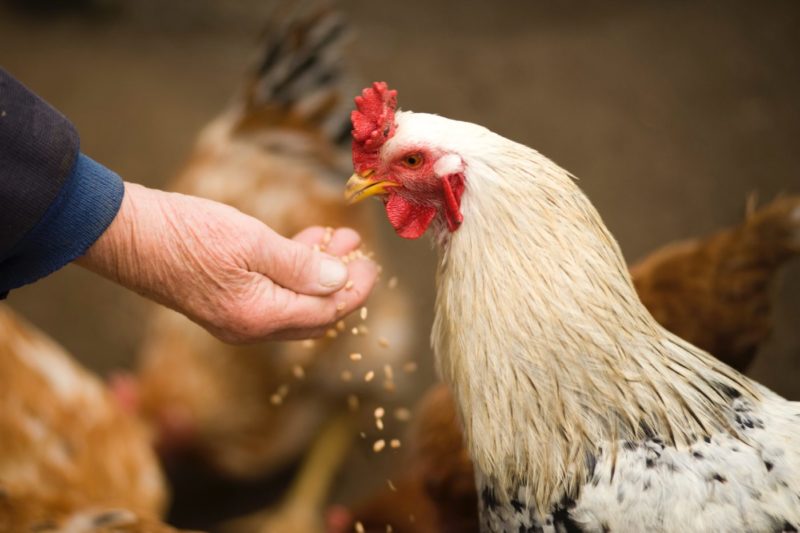
Ok, so this is kind of a taste preference for you, rather than chickens.
Asparagus has a tendency to change the flavor and smell of things if you know what I mean.
The same goes for chicken eggs–you will definitely be able to taste asparagus if a chicken has consumed some.
This delicious spring veggie isn’t harmful to chickens, but in general, they aren’t really interested in eating asparagus anyway.
4. Nightshade Plants
Nightshade just sounds scary, doesn’t it? Although we know about deadly nightshade, there are other plants that fall within this category that are fatal to chickens.
Under the umbrella of the nightshade family resides:
- Tomatoes (unripened)
- Eggplants
- Peppers
All of these veggies contain solanine, like potatoes, and can be extremely toxic to chickens, especially in their raw state.
Try your best to keep chickens away from all parts of these plants.
However, your chickens often know better and will not eat something toxic to them. Just never offer it in their feed dish.
A word about tomatoes: Tomatoes are a favorite among most birds, domestic and wild, and they are an easy veggie to grow in a chicken garden because they are very bountiful.
Chickens can and will eat overripe tomatoes, and at this stage, they are generally safe. I wouldn’t go and pile a bunch in their coop, but if they find them on their own, and have a small snack, they should be fine.
5. Avocados
The entire avocado is toxic to chickens, including the leaves of the plant. It’s a good idea to keep your chickens away from this plant if you have it in your garden.
Never give chickens avocado or guacamole scraps because they contain the persin toxin which causes the heart to dysfunction and the bird to die within 48 hours.
This isn’t just a chicken thing either, so keep your avocados away from other birds, and even some mammals.
6. Dried or Raw Beans
Amazingly, dried beans contain a natural pesticide that can cause death for your chicken. Some say that cooked beans are safe for chickens, and this may be true, but better safe than sorry.
A chicken that’s consumed raw or dried beans can die within a few hours, so never offer your beans to your chickens.
7. Anything Moldy
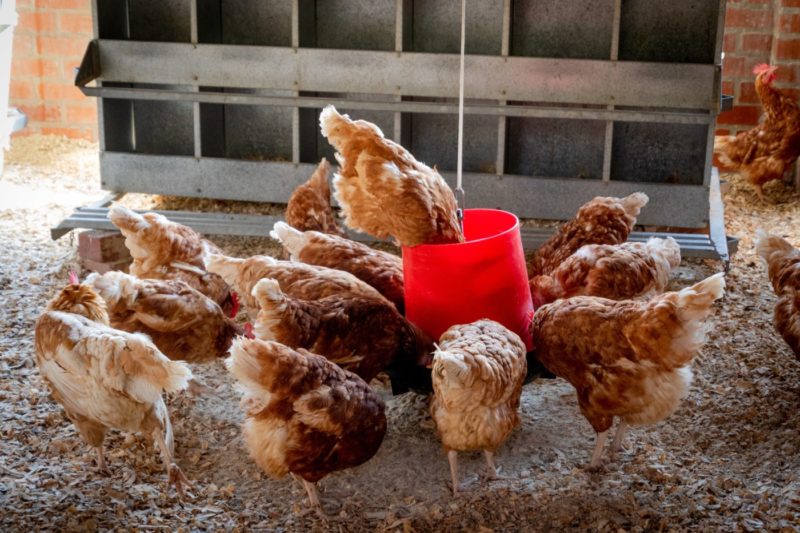
If you wouldn’t eat it, don’t pass it off to your chickens. Some molds are okay and won’t make chickens sick, but there’s really no way to tell which is safe and which can cause illness, so rather avoid the risk.
8. Dairy
Chickens can’t digest dairy the way we do, so instead of enjoying a saucer of milk, they will quickly become ill with diarrhea, especially if they’ve consumed too much.
Aside from diarrhea being an unpleasant ailment, it can also cause dehydration. It can be difficult to determine if a chicken is dehydrated before it’s too late, so it is best to prevent the loss of fluids.
In other words, don’t serve up any soft-serve ice cream or cookies and milk to your flock.
9. Chocolate
Most people know that dogs can get deathly ill from consuming chocolate, but so can chickens. What’s a sweet treat to you, can be a deadly cardiac episode for your chicken.
Just like dogs, if your chickens accidentally eat a few tidbits of chocolate, they should be ok. If they happen to get into an entire bag of dark chocolate, it’s a different story altogether.
The darker the chocolate, the more toxic it is.
As you can see, there’s a handful of surprising things chickens cannot eat, and if you’ve been feeding any of them, you may be shocked to find out they are toxic.
In small doses, most chickens can make it through unscathed, and consider yourself lucky if you’ve not lost a chicken to toxic foods.
In general, chickens won’t eat something they know will make them sick. They avoid onions, for example, but there’s always one or two chickens that may not have gotten the memo.
So before you or your family takes the table scraps out to the coop, make sure it does not include things chickens cannot eat, so that your treats can make your chooks cluck with delight rather than cause health issues.
